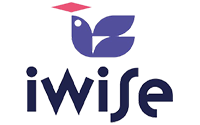The iWISE Olympiad Mathematics Category was designed to demonstrate the importance of mathematics, no matter what career path students choose to take mathematics is pivotal to the advancement of our society. iWISE prefers a practical approach to mathematics, going beyond the classroom to develop the mathematical skills of our students in a fun creative way.
Based on the iWISE Olympiad Mathematics Category’s mission to demonstrate the importance of practical, creative mathematics in a fun way, here are the specific objectives and evaluation criteria.
Objectives for the Mathematics Category
Foster creative and practical mathematical thinking
– Encourage creative application: Motivate students to apply mathematical concepts to real-world problems in an innovative manner.
– Stimulate practical investigation: Provide opportunities for students to conduct practical research projects in subcategories like Game Theory, Statistics, and Geometry, moving beyond traditional classroom exercises.
– Demonstrate relevance: Help students understand and showcase how mathematics is pivotal for the advancement of society, regardless of their chosen career path.
Enhance mathematical and problem-solving skills
– Deepen conceptual understanding: Challenge students to develop a richer and more profound understanding of mathematical concepts through applied problem-solving.
– Develop problem-solving techniques: Sharpen students’ analytical, logical, and creative problem-solving skills to tackle complex problems.
– Cultivate resilience: Encourage perseverance by engaging students with multi-layered, challenging, and open-ended problems.
Improve communication and presentation abilities
– Strengthen mathematical communication: Equip students with the ability to clearly articulate their mathematical thinking and reasoning, both orally and in writing.
– Enhance visual presentation: Guide students to present their data, findings, and conclusions in the most effective and creative visual manner possible.
– Build confidence: Boost students’ confidence in their mathematical abilities through the process of developing and presenting a fun and engaging project.
Aspiring mathematicians can explore the Mathematics Category through various subcategories:
Algebra
Game Theory
Geometry
Number Theory
Statistics & Probability
- Click on the Registration Tab
- Select one of the Virtual Finals
- Fill in your details.
- Fill in your selected category details on the corresponding form.
- Select your available time for the Judging process.
- Submit your zoom judging session.
- Proceed to payment.
- Complete your submission.
Evaluation criteria for the Mathematics Category
Judging will be based on the project’s conceptual and analytical depth, creative execution, and the student’s ability to communicate their findings.
Knowledge and mathematical understanding
– Mathematical depth: Does the project demonstrate a clear and deep understanding of the mathematical principles involved?
– Logical reasoning: Is the problem clearly stated, and are the conclusions logically derived from the mathematical data and known facts?
– Skill acquisition: Is there evidence that the students have acquired new mathematical skills or knowledge by completing the project?
– Analytical rigor: How effectively and thoroughly was the mathematical research or problem-solving carried out?
Creativity and originality
– Innovative approach: Does the project propose an original and non-standard approach to a mathematical problem?
– Creative problem-solving: Does the student demonstrate ingenuity in applying mathematical concepts to a practical context?
– Unique interpretation: Does the student offer creative or insightful interpretations of their mathematical results?
Communication and presentation
– Visual clarity: Is the visual display and presentation of the mathematical data and results clear, logical, and effective?
– Clear explanation: Can the student clearly explain their mathematical reasoning, methodology, and conclusions to the judges?
– Project thoroughness: How effectively was the original project plan carried through to completion, including data collection and analysis?
Collaboration and independence
– Teamwork (if applicable): For group projects, is there evidence of effective collaboration and shared contributions?
– Independent work: Does the student demonstrate clear ownership of the project, with any guidance from adults acknowledged appropriately?
Requirements for Virtual Finals:
Participants must out together the following documents for their STEM Projects:
Project Abstract
Project Portfolio
PowerPoint Presentation
No theme for this category.
Group submission is up to 3 participants
Requirements for Global Finals:
Participants must put together the following documents for their STEM Projects:
Project Abstract
Project Research Plan
Project Portfolio
Poster
Prototype (If Applicable)
PowerPoint Presentation (Optional)
No theme for this category
Group submission is up to 3 participants.
